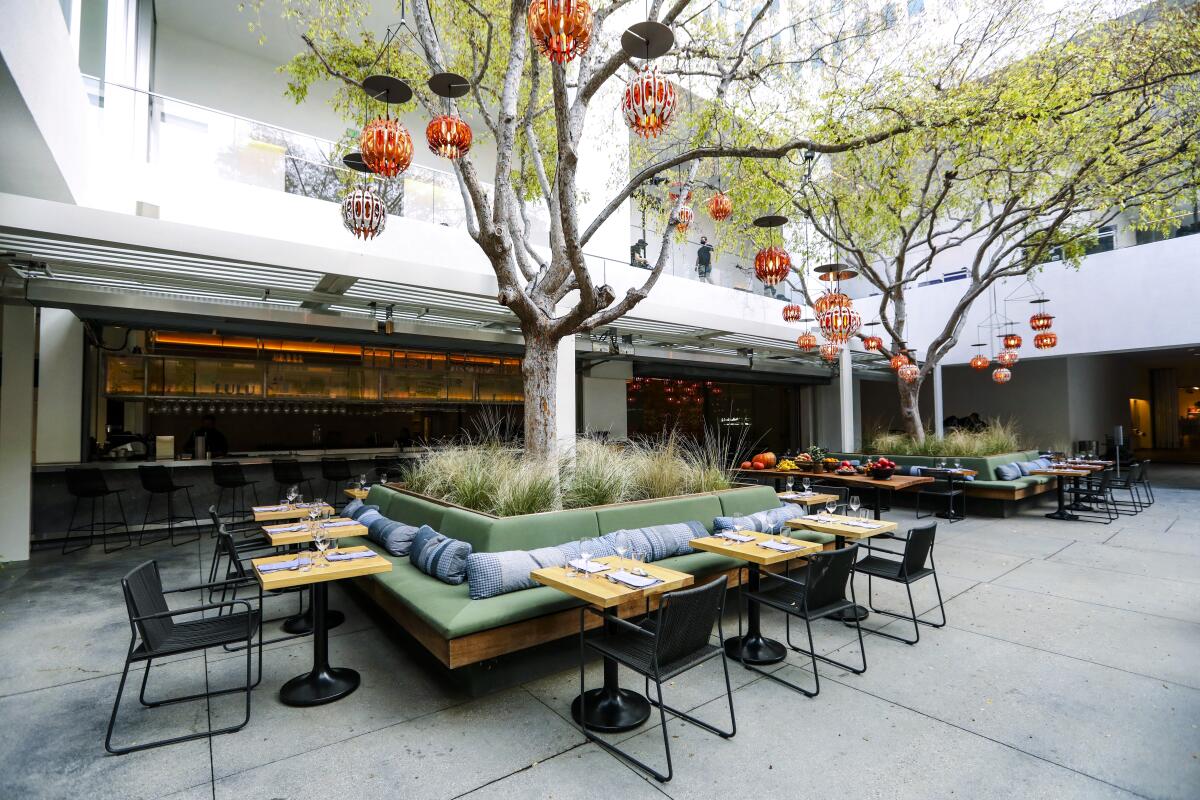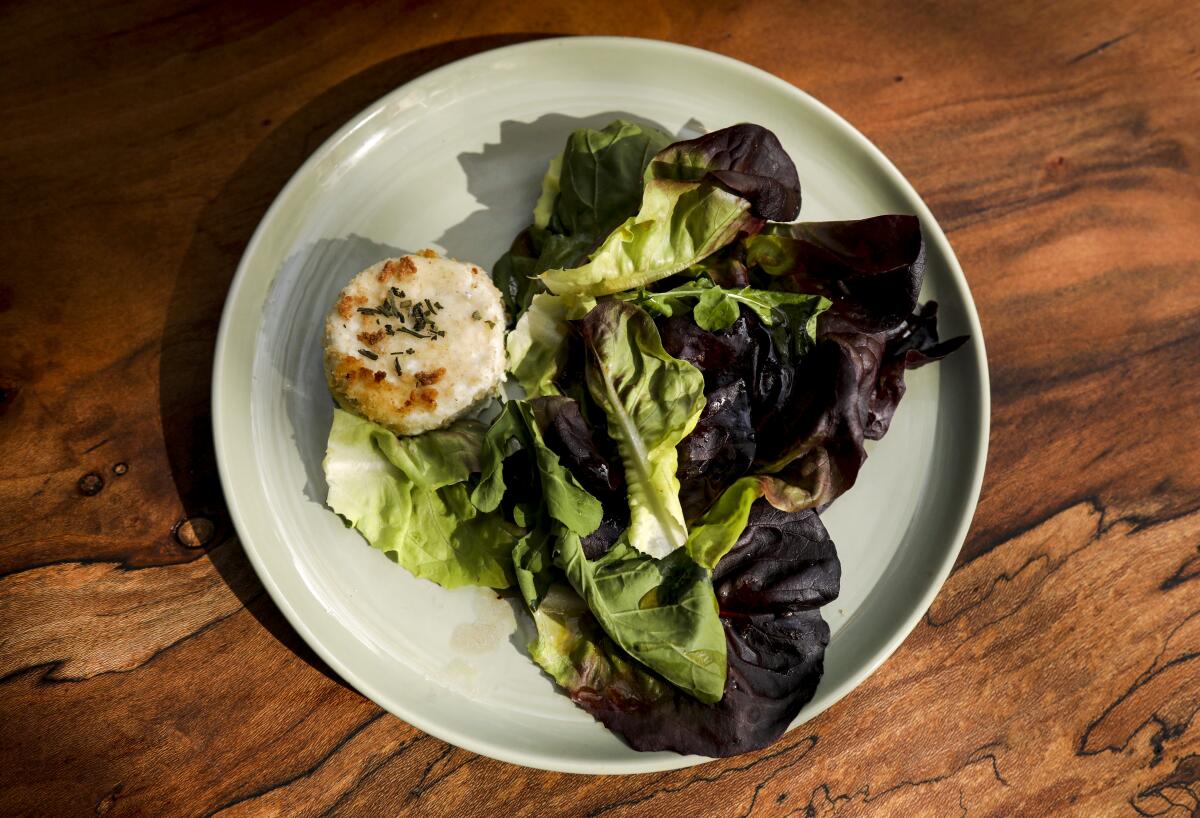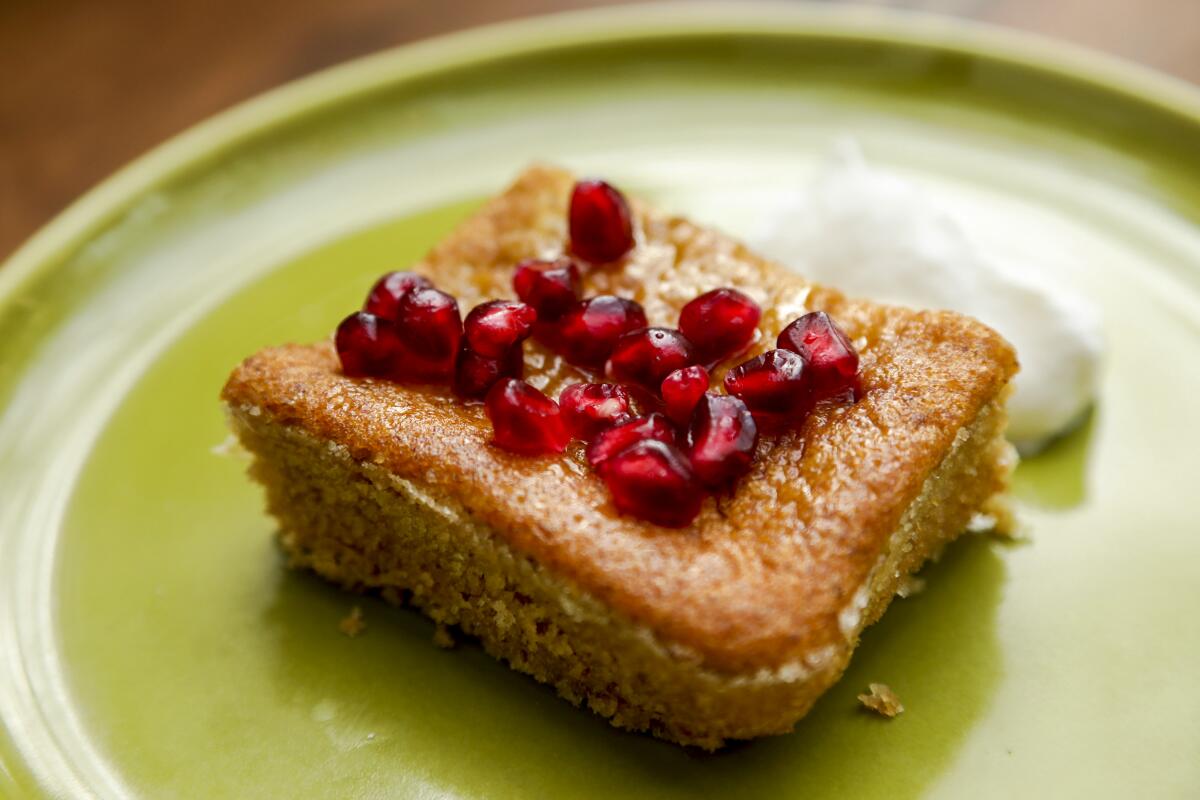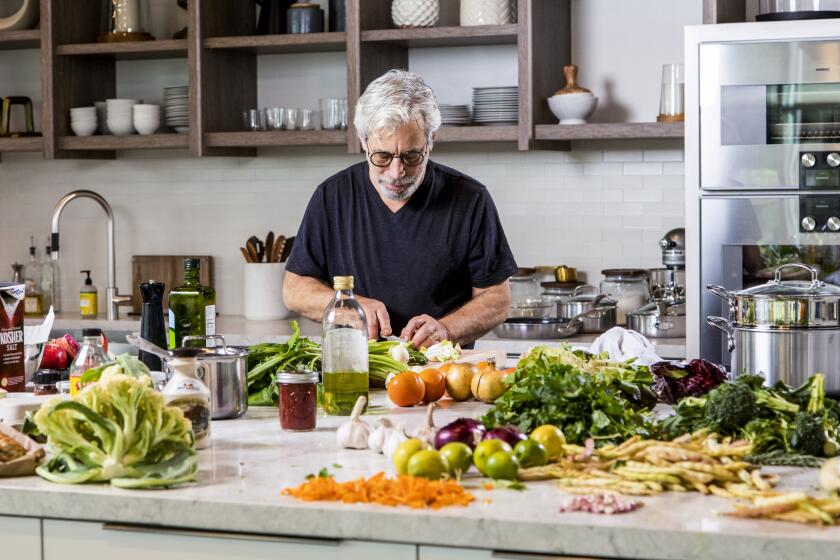5 things to know about Lulu, the new Hammer Museum restaurant from Alice Waters and David Tanis

- Share via
Lulu, a new restaurant and bar tucked into the courtyard of the Hammer Museum, is a collaboration between chefs Alice Waters and David Tanis, a partnership built on decades of friendship and working together at Waters’ Chez Panisse in Berkeley. Here are five things to know about Lulu.
This is not an Alice Waters restaurant — not really
Waters’ interest in seasonality and focus on local farming will be on full display. But Tanis is taking the lead.
“I’ve never wanted to have another restaurant — and I don’t have another restaurant,” Waters said. “I am cheerleading for a restaurant that I think is very important to have at the Hammer Museum.”
Hammer Museum director Ann Philbin approached Waters in 2020 about opening a restaurant in the available courtyard space. Noting the ties to a greater institution, Waters felt it could be similar to the Rome Sustainable Food Project at the American Academy in Rome, a project she helped found in 2006. If she could choose someone else to lead what would become Lulu, she would consider it — and she could think of no one else but Tanis.
Tanis, a seasoned chef, prolific cookbook author and New York Times columnist with a pedigree and understanding of natural flavor and culinary nuance, has headed kitchens in Berkeley, Santa Fe, N.M., Paris, New York City and beyond, and was ready for the task.
“Alice called me and said, ‘Say, how would you like to open a little restaurant in a museum in Los Angeles?’ And I said, ‘Oh yes, that sounds good,’” Tanis said. “I had just gone through the [early] pandemic myself, we’d kind of escaped to upstate New York for a while to get out of the city, and I was looking to do something new.”
Menu and format
The menu will change constantly. An a la carte menu could offer the likes of sandwiches, soups and salads, while a three-course prix fixe will allow Tanis to craft meals with a culinary narrative or arc, much like at Chez Panisse. Dishes — designed to be straightforward and unfussy — could include Sonoma goat cheese with garden lettuces and golden beets, and North African lamb tagine with saffron couscous.
“Our menu is very simple; it’s big, bright flavors but very simple preparation,” Tanis said. “There aren’t a lot of bells and whistles; if it’s a kale dish it won’t be kale cooked three different ways with a little kale powder on top.”

Regenerative farming is the backbone of the restaurant
Much like at Chez Panisse, local farms are central to Lulu, though Waters says sustainability isn’t enough; restaurants and consumers need to support practices that actively fight climate change. At Lulu, the team is partnering with farms engaged in such practices, such as no-till cultivation, carbon capture, and encouraging pigs to graze in (and fertilize) orchards. Composting and utilization of as much product as possible is crucial to Lulu’s kitchen as well.
A visit to a farmers market and then The Times’ test kitchen to see what David Tanis creates in L.A.
The restaurant currently employs a green-waste compost pickup, but the team hopes to find partner farms that can help close the carbon loop: When Tanis and others return to the farm to pick up their produce, meat or dairy order, they’ll bring compost from the restaurant with them to be used for the farm’s soil.
“Sustainable is where we are right now, and we cannot stay where we are now,” Waters said. “We’re destroying the planet. And so we have to really be regenerative in terms of thinking about agriculture. ... We need to, for our survival on this planet, learn the values that can help us live together, and it begins with stewardship of the land. We need to fall in love with nature, and what better way than to fall in love with food?”
The design is meant to be sustainable too
The team inherited a fully formed restaurant space. Instead of tearing out the decor of the Hammer’s last restaurant (Audrey), the Lulu team worked to limit its carbon footprint as much as possible, replacing more modern tabletops with wood sourced from a single fallen tree; adding greenery that’s native to Southern California; and maintaining almost everything else.

Education
Education, Waters said, is at the core of her values — and of Lulu. “It’s that Montessori education that I’ve never been able to let go of; it’s an education of the senses and learning by doing,” she said.
The chef’s decades of linking nutrition and education will continue at Lulu, where she and Tanis hope to connect UCLA students and the affiliated museum with hands-on opportunities to learn and even work in the kitchen (they’ve already hired a couple of UCLA students). They also hope to use the connection to the UC system to spur discussions of local food sourcing on a large, university-size scale.
Tanis hopes education can continue for everyone in the kitchen, not only through hiring students but also through welcoming guest cooks to showcase their own techniques and areas of expertise for themed or special menus — allowing Tanis and guests to keep learning too.
Lulu is now open in the Hammer Museum, 10899 Wilshire Blvd., Los Angeles, serving lunch from 11 a.m. to 6 p.m. Tuesday to Sunday. Reservations are available online.
More to Read
Eat your way across L.A.
Get our weekly Tasting Notes newsletter for reviews, news and more.
You may occasionally receive promotional content from the Los Angeles Times.












